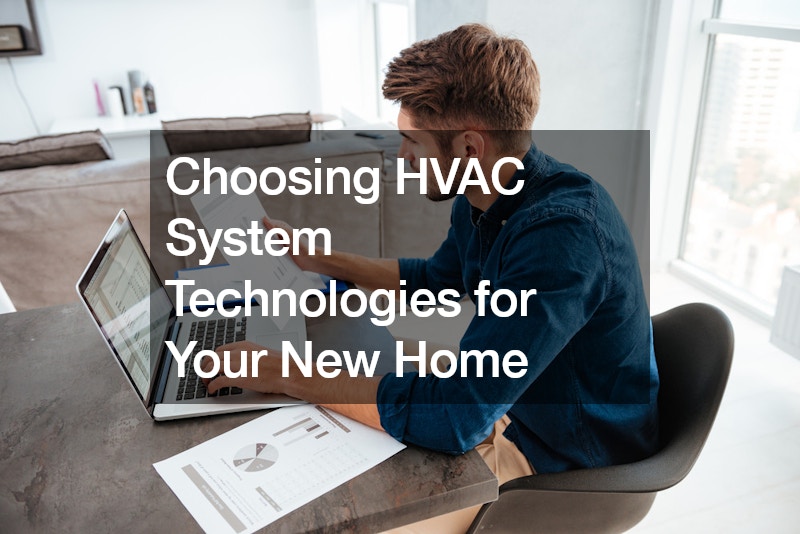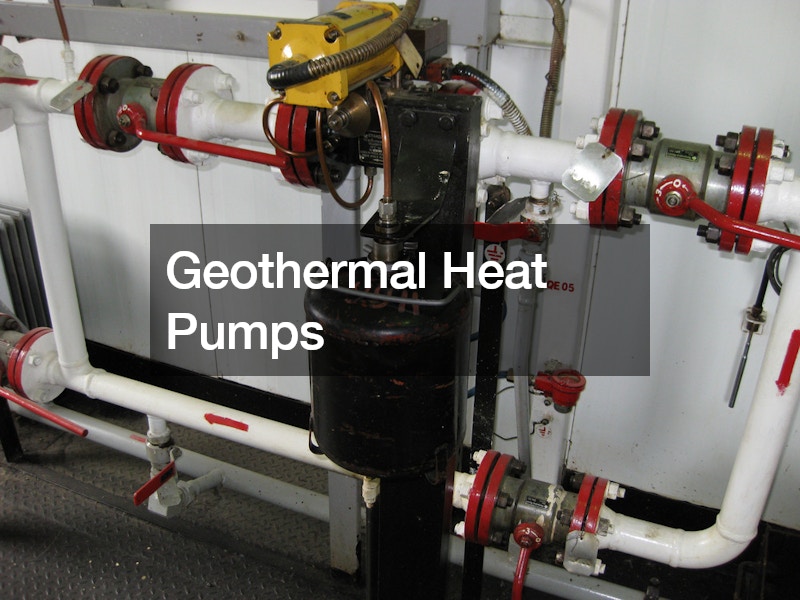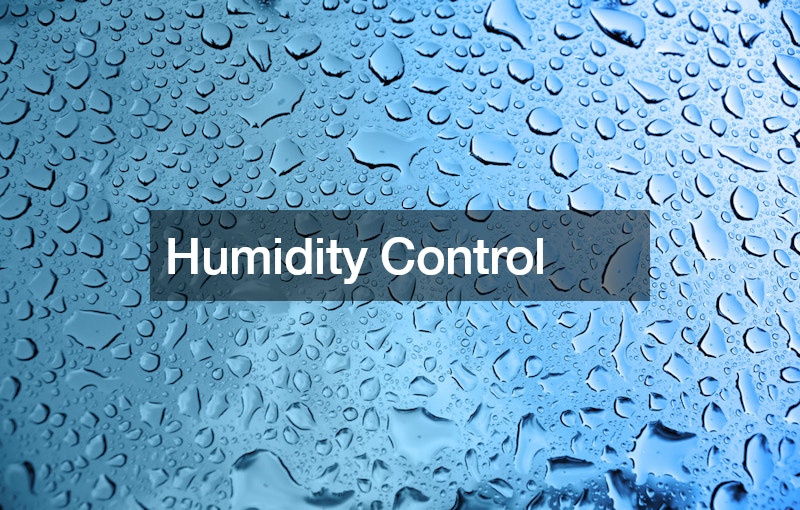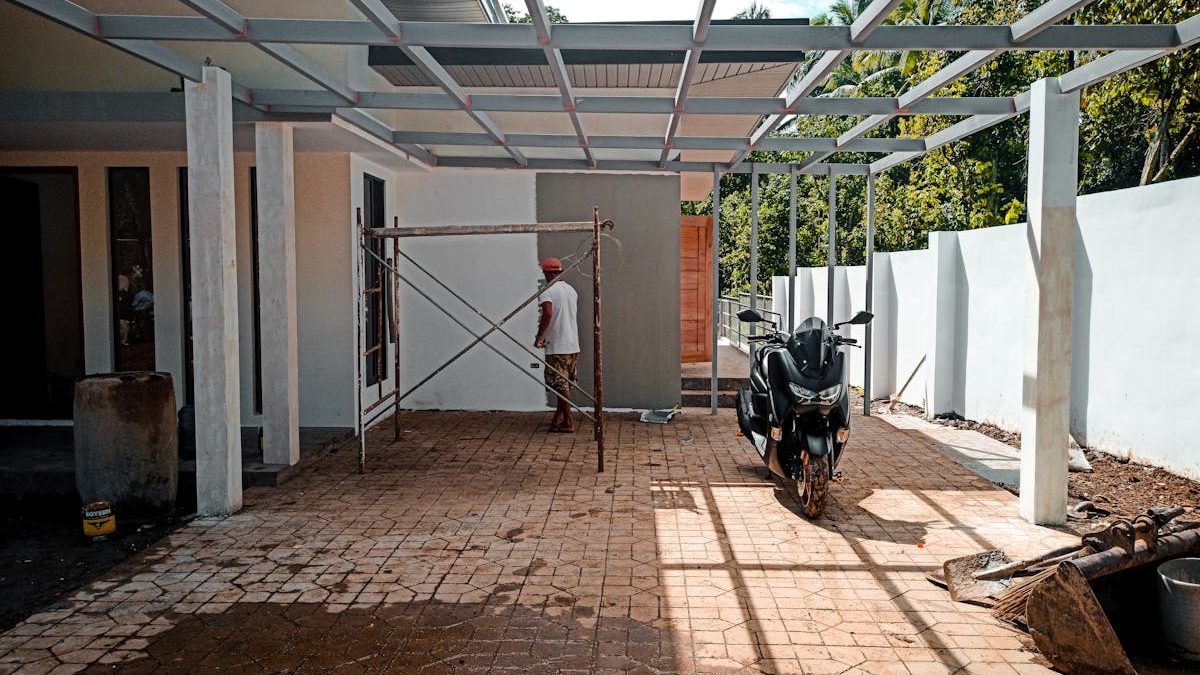
Choosing HVAC System Technologies for Your New Home
When building or renovating a new home, one of the key decisions you’ll need to make is choosing the right HVAC system technologies. Your heating, ventilation, and air conditioning (HVAC) system is essential for maintaining a comfortable indoor environment, and selecting the right technologies can impact your home’s energy efficiency, comfort, and overall performance. In this comprehensive guide, we’ll explore the various HVAC system technologies available for your new home and help you make informed choices that best suit your needs.
Energy Efficiency
An important consideration when selecting HVAC system technologies for your new home is energy efficiency. Energy-efficient systems can help reduce your utility bills and minimize your environmental impact. By investing in an energy-efficient HVAC system, you can enjoy long-term cost savings and contribute to a greener future for your community.
To determine the energy efficiency of different HVAC technologies, look for systems with high Seasonal Energy Efficiency Ratio (SEER) ratings for air conditioning installation units and Heating Seasonal Performance Factor (HSPF) for heat pumps. Additionally, Energy Star certification is a reliable indicator of energy efficiency in HVAC systems. Choosing energy-efficient technologies will not only benefit your wallet but also help reduce your carbon footprint.
When selecting HVAC system technologies for your new home, consider the benefits of an energy-efficient system. Energy-efficient HVAC systems can help you save money on your utility bills, reduce your carbon footprint, and increase the overall comfort of your home. By choosing technologies with high SEER and HSPF ratings, as well as Energy Star certification, you can ensure that your new home is equipped with the most advanced and environmentally friendly HVAC systems available.

Smart Thermostats
A smart thermostat is a Wi-Fi-enabled device that allows you to control your home’s temperature remotely through a smartphone or tablet. By learning your heating and cooling services and preferences, a smart thermostat can help optimize energy usage and reduce your utility bills. In addition to convenience, smart thermostats offer features such as zoning control and energy usage tracking, making them a valuable addition to any new home.
The advantages of using a smart thermostat in your HVAC system are numerous. With features such as programmable schedules, geofencing, and remote access, you can easily adjust your home’s temperature to suit your lifestyle and save on energy costs. Smart thermostats can also integrate with other smart home devices, providing a seamless and energy-efficient home automation experience.
Zoning Systems
A zoning system divides your home into separate areas or zones, each with its thermostat and controls. This allows you to customize the temperature in different parts of your home, improving comfort and energy efficiency. Zoning systems are particularly beneficial for multi-story homes or areas with varying heating and cooling needs.
There are different types of zoning systems available for HVAC systems, including traditional zone control systems and smart zoning solutions. Traditional zone control systems use dampers to regulate airflow, while smart zoning solutions utilize sensors and software to automatically adjust temperature settings. By implementing a zoning system in your new home, you can enhance comfort and energy savings while reducing HVAC system wear and tear.
Installing a zoning system in your new home can significantly improve comfort and energy efficiency. By dividing your home into separate zones with individual temperature controls, you can customize your heating and cooling settings to meet specific needs. Whether you have different temperature preferences in various areas of your home or want to reduce energy waste, a zoning system is a valuable HVAC technology to consider.
Ductless Mini-Split Systems
A ductless HVAC mini-split system is a type of HVAC technology that does not require ductwork to distribute conditioned air. Instead, these systems use individual air handlers mounted on walls or ceilings to deliver heating and cooling directly to specific rooms. Ductless mini-split systems are highly efficient and versatile, making them a popular choice for new home construction and renovations.
The benefits of installing a ductless mini-split system in your home are numerous. These systems offer precise temperature control, energy efficiency, and improved indoor air quality service. Ductless mini-split systems are also easy to install and operate quietly, making them an ideal solution for homeowners seeking enhanced comfort without the need for ductwork.
When exploring HVAC system technologies for your new home, consider the advantages of ductless mini-split systems. These versatile and energy-efficient systems can provide personalized comfort, improve indoor air quality, and offer flexible installation options. By incorporating a ductless mini-split system into your new home, you can enjoy enhanced comfort and energy savings year-round.

Geothermal Heat Pumps
A geothermal heat pump is a renewable heating and cooling technology that utilizes the earth’s constant temperature to provide energy-efficient climate control. By transferring heat between your home and the ground, geothermal heat pumps can significantly reduce your energy consumption and environmental impact. While the upfront cost of installing a geothermal system may be higher, the long-term benefits outweigh the initial investment.
There are various incentives and rebates available for installing a geothermal heat pump, including federal tax credits, state incentives, and utility rebates. These financial incentives can help offset the upfront costs of geothermal system installation and make it a more attractive option for environmentally conscious homeowners. By taking advantage of available incentives, you can enjoy the many benefits of geothermal heating and cooling in your new home.
Radiant Heating Systems
A radiant heating system delivers heat directly to the floor, wall, or ceiling of a room, providing comfortable and efficient warmth. Unlike forced air systems that rely on ductwork, radiant heating systems use electric resistance cables, hot water tubes, or radiators to distribute heat evenly throughout your home. Radiant heating systems are known for their energy efficiency and silent operation, making them a popular choice for new home construction.
When comparing a radiant heating system to forced air systems, consider the pros and cons of each technology. Radiant heating systems offer uniform heat distribution, reduced energy consumption, and improved indoor air quality. However, installation costs may be higher, and HVAC maintenance requirements could vary compared to traditional forced air systems. By weighing the benefits and drawbacks, you can determine if a radiant heating system is right for your new home.
Installing a radiant heating system in your new home can provide numerous benefits for comfort and energy efficiency. These systems offer silent operation, uniform heat distribution, and reduced energy consumption compared to forced air systems. While upfront costs and maintenance requirements may be higher, the long-term advantages of radiant heating systems make them a worthwhile investment for homeowners seeking improved comfort and efficiency.
Air Purification Technologies
Various air purification technologies are commonly used in HVAC systems to improve indoor air quality and reduce allergens and pollutants. From HEPA filters to UV germicidal lamps, these technologies can capture and eliminate airborne particles that can negatively impact your health. By incorporating air purification technologies into your HVAC system, you can create a cleaner and healthier indoor environment for you and your family.
Air purification technologies play a crucial role in enhancing indoor air quality in homes. By removing allergens, bacteria, and other contaminants from the air, these technologies can reduce respiratory issues and allergy symptoms. HEPA filters, UV germicidal lamps, and other air purification devices are effective in trapping and neutralizing harmful particles, ensuring that your home’s air is clean and safe to breathe.

Humidity Control
Controlling humidity levels in your home is essential for maintaining comfort and preventing issues such as mold growth and condensation. High humidity can lead to moisture problems and poor indoor air quality, while low humidity can cause dry skin and respiratory irritation. By implementing humidity control solutions in your HVAC system, you can create a balanced and healthy indoor environment for you and your family.
There are various options for controlling humidity levels in your home, including whole-house dehumidifiers and humidifiers. These devices work in conjunction with your HVAC system to regulate moisture levels and maintain optimal humidity throughout your home. By investing in humidity control technologies, you can prevent mold growth, improve air quality, and enhance the overall comfort of your living space.
Noise Reduction
Noise from HVAC systems can be a nuisance in your home, affecting comfort and tranquility. To reduce noise levels, consider technologies that are designed to operate quietly and efficiently. From sound-dampening materials to advanced compressor designs, there are various options available to minimize noise from your HVAC system and create a peaceful indoor environment.
Reducing noise from your HVAC system is essential for maintaining a peaceful and comfortable living environment. By choosing technologies that prioritize noise reduction, you can enjoy quiet operation and enhanced comfort in your home. Sound-dampening materials, advanced compressor designs, and proper installation techniques can significantly reduce noise levels from your HVAC system, ensuring a serene atmosphere for you and your family.
Cost Considerations
When budgeting for HVAC system technologies in your new home, it’s essential to consider various factors that can impact costs. Upfront expenses for equipment, installation, and permits should be taken into account, as well as long-term operating and maintenance costs. While energy-efficient technologies may have higher initial costs, they can provide significant savings over time through reduced energy consumption and lower utility bills.
Investing in energy-efficient HVAC system technologies can lead to long-term cost savings and increased home value. While the initial costs may be higher, the energy efficiency and durability of these systems can result in lower utility bills and reduced maintenance expenses. By considering the long-term benefits of energy-efficient technologies, you can make informed decisions that align with your budget and sustainability goals.
Installation and Maintenance
Professional installation is crucial for ensuring the proper performance and longevity of advanced HVAC system technologies in your new home. A heating contractor with experience in installing high-tech systems can help you select the right equipment, optimize system efficiency, and address any potential issues. Regular maintenance is also essential to keep your HVAC system running smoothly and efficiently over time.
Professional installation by experienced HVAC contractors is essential for ensuring the optimal performance of advanced system technologies in your new home. By working with a reputable heating contractor, you can ensure that your system is installed correctly, according to industry standards, and that any potential issues are addressed promptly. Regular maintenance, including cleaning, inspections, and tune-ups, will help prolong the life of your HVAC system and prevent costly HVAC repairs down the line.
When considering HVAC system technologies for your new home, prioritize professional installation and regular maintenance. Working with qualified HVAC contractors can ensure that your system is installed correctly and maintained properly, optimizing performance and efficiency. By investing in professional installation and ongoing maintenance, you can protect your HVAC system, extend its lifespan, and enjoy reliable heating and cooling services for years to come.

Future-Proofing Your HVAC System
Future-proofing your HVAC system involves considering current trends and advancements in technology to ensure that your home remains up-to-date and efficient for years to come. By staying informed about emerging HVAC technologies, you can make smart choices that enhance your home’s comfort, energy efficiency, and sustainability. Whether it’s incorporating smart thermostats, energy-efficient systems, or renewable technologies, future-proofing your HVAC system can position your home for long-term success.
Future-proofing your HVAC system is vital for ensuring that your new home remains efficient, comfortable, and sustainable in the long run. By considering emerging technologies and trends in HVAC systems, you can make informed decisions that enhance your home’s performance and energy efficiency. Whether it’s incorporating advanced features, renewable solutions, or smart technologies, future-proofing your HVAC system can help you stay ahead of the curve and enjoy lasting benefits for your home.
In conclusion, selecting the right HVAC system technologies for your new home is a crucial decision that can impact your comfort, energy efficiency, and environmental footprint. By considering factors such as energy efficiency, smart thermostats, zoning systems, ductless mini-split systems, geothermal heat pumps, radiant heating systems, air purification technologies, humidity control, noise reduction, cost considerations, installation and maintenance, environmental impact, integration with home automation, local climate considerations, and future-proofing, you can make informed choices that enhance your home’s performance and sustainability. Whether you’re looking to reduce energy costs, improve indoor air quality, or enhance comfort, there are a variety of HVAC technologies available to meet your specific needs and preferences. By working with experienced HVAC services and heating contractors, you can ensure that your new home is equipped with the latest technologies and systems that provide efficient and reliable heating and cooling services for years to come.



